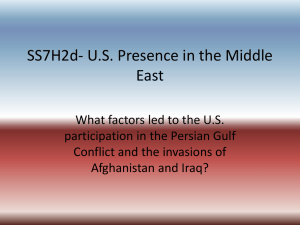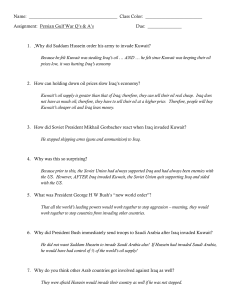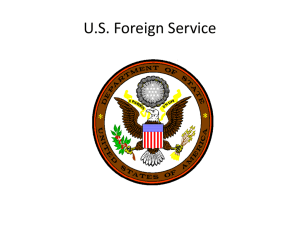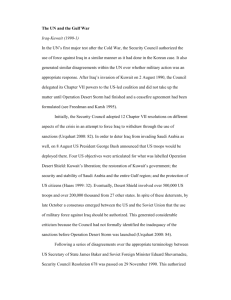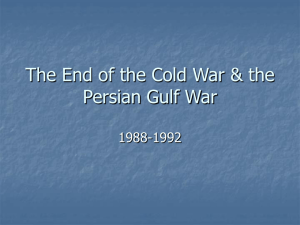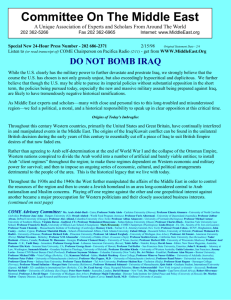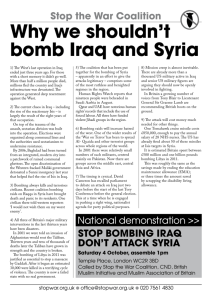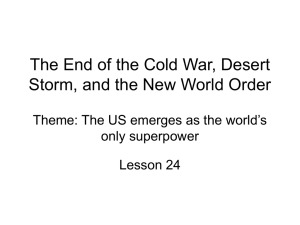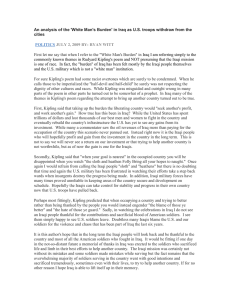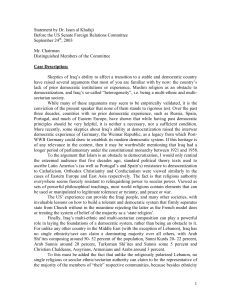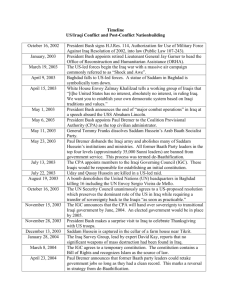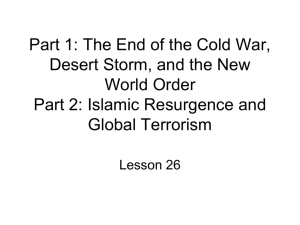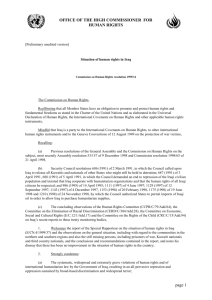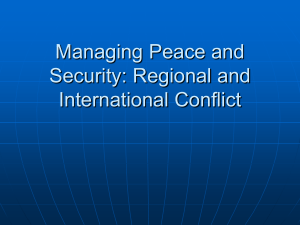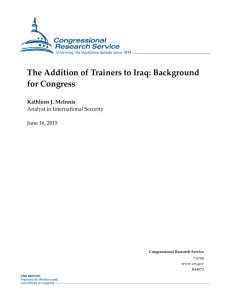FOOTNOTE PRACTICE - George Stevens Academy
advertisement
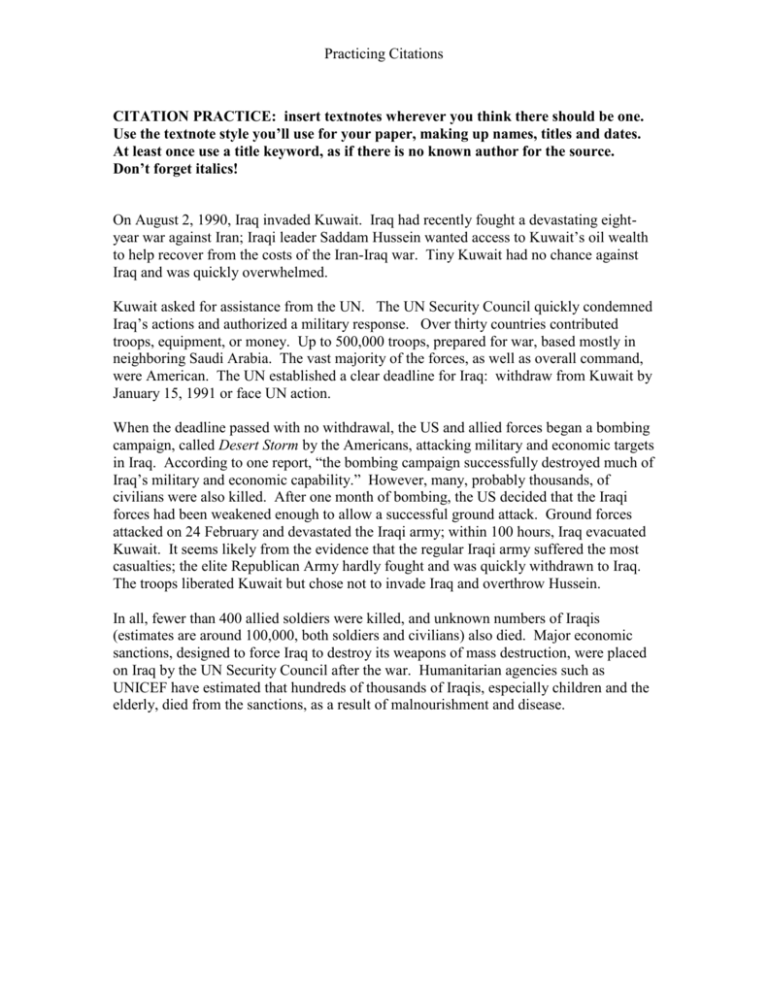
Practicing Citations CITATION PRACTICE: insert textnotes wherever you think there should be one. Use the textnote style you’ll use for your paper, making up names, titles and dates. At least once use a title keyword, as if there is no known author for the source. Don’t forget italics! On August 2, 1990, Iraq invaded Kuwait. Iraq had recently fought a devastating eightyear war against Iran; Iraqi leader Saddam Hussein wanted access to Kuwait’s oil wealth to help recover from the costs of the Iran-Iraq war. Tiny Kuwait had no chance against Iraq and was quickly overwhelmed. Kuwait asked for assistance from the UN. The UN Security Council quickly condemned Iraq’s actions and authorized a military response. Over thirty countries contributed troops, equipment, or money. Up to 500,000 troops, prepared for war, based mostly in neighboring Saudi Arabia. The vast majority of the forces, as well as overall command, were American. The UN established a clear deadline for Iraq: withdraw from Kuwait by January 15, 1991 or face UN action. When the deadline passed with no withdrawal, the US and allied forces began a bombing campaign, called Desert Storm by the Americans, attacking military and economic targets in Iraq. According to one report, “the bombing campaign successfully destroyed much of Iraq’s military and economic capability.” However, many, probably thousands, of civilians were also killed. After one month of bombing, the US decided that the Iraqi forces had been weakened enough to allow a successful ground attack. Ground forces attacked on 24 February and devastated the Iraqi army; within 100 hours, Iraq evacuated Kuwait. It seems likely from the evidence that the regular Iraqi army suffered the most casualties; the elite Republican Army hardly fought and was quickly withdrawn to Iraq. The troops liberated Kuwait but chose not to invade Iraq and overthrow Hussein. In all, fewer than 400 allied soldiers were killed, and unknown numbers of Iraqis (estimates are around 100,000, both soldiers and civilians) also died. Major economic sanctions, designed to force Iraq to destroy its weapons of mass destruction, were placed on Iraq by the UN Security Council after the war. Humanitarian agencies such as UNICEF have estimated that hundreds of thousands of Iraqis, especially children and the elderly, died from the sanctions, as a result of malnourishment and disease.




